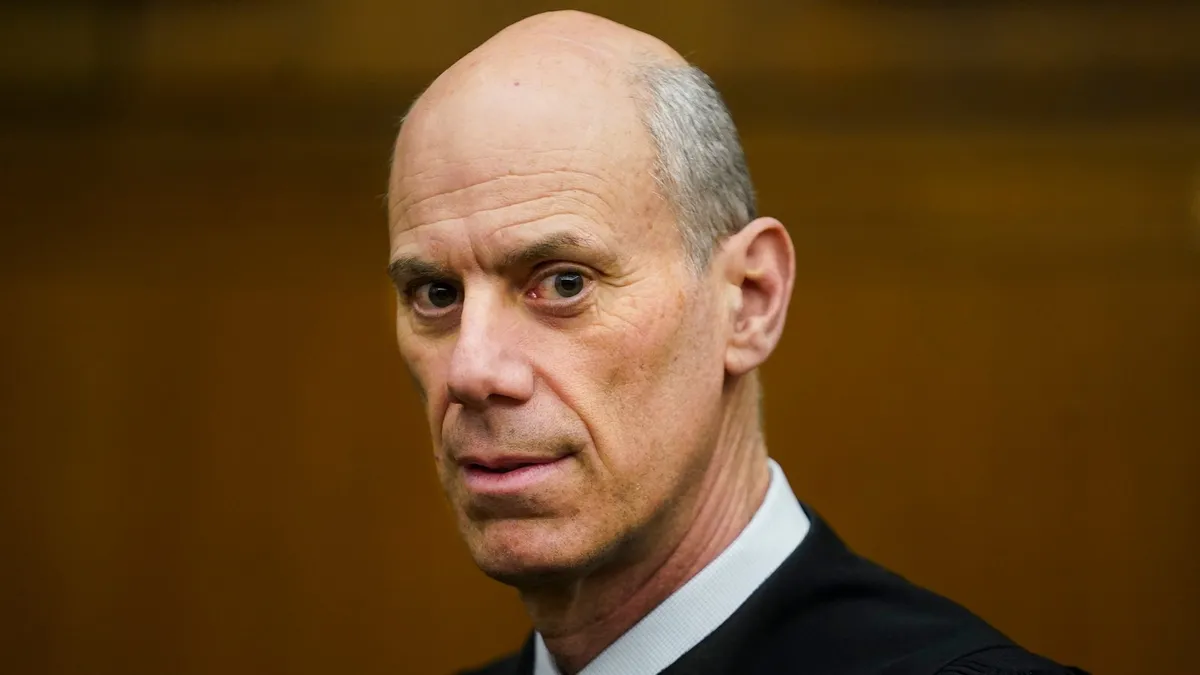
U.S. District Judge James Boasberg has made headlines by blocking the Trump administration from deporting noncitizens, specifically Venezuelan immigrants accused of being affiliated with the gang Tren de Aragua, without ensuring they receive due process. In a recent filing on Thursday, Boasberg criticized the Justice Department for allegedly dodging its responsibility to comply with his orders, particularly regarding the provision of detailed information on the controversial deportation flights.
In his ruling on Thursday, Judge Boasberg expressed dissatisfaction after the Justice Department submitted a written declaration from an acting officer of the U.S. Immigration and Customs Enforcement (ICE). This declaration merely reiterated general information about the deportation flights and indicated that Cabinet secretaries were still deliberating whether to invoke the state secrets privilege. This legal principle allows the head of an executive department to withhold evidence in court if its disclosure is believed to jeopardize national security or foreign relations, according to the Center for Constitutional Rights.
Boasberg deemed the government's response as "woefully insufficient," and reiterated the need for more comprehensive information regarding the deportation flights. Notably, the administration's actions were carried out under the Alien Enemies Act, a seldom-used wartime authority that has raised concerns about its implications for due process. The judge ordered the return of two flights that were reportedly deporting the alleged gang members to El Salvador, but officials failed to comply with this order.
As the situation unfolds, the Trump administration has yet to disclose the identities of the alleged gang members who were deported. Initially, the Department of Justice refused to provide further details about the flights, citing national security as the reason. In his recent order, Boasberg demanded that the government present a valid justification by March 25 for its insufficient responses and the noncompliance with his temporary restraining orders.
Furthermore, the judge has requested a sworn declaration by 10 a.m. Friday from someone involved in discussions within Trump's Cabinet regarding the invocation of the state secrets privilege, along with an update on whether the privilege will be claimed by the upcoming deadline.
During a press briefing on Thursday, ABC News' Karen Travers questioned White House Press Secretary Karoline Leavitt about the administration's reluctance to provide information on the deportation flights, especially if they are confident in their adherence to the judge's order. Leavitt responded, stating, "We are confident that we've complied... all of the flights that were subject to the written order of the judge took off before the written order was pushed in the courtroom." She further asserted that the President is acting within his Article II powers and the authority granted under the Alien Enemies Act.
The legal battle has intensified, with Trump and several House Republicans calling for the impeachment of Judge Boasberg, labeling him as "radical left." In an unusual move, Chief Justice of the United States John Roberts issued a statement addressing the impeachment threats, emphasizing that disagreements with judicial decisions should not lead to calls for impeachment. "For more than two centuries, it has been established that impeachment is not an appropriate response to disagreement concerning a judicial decision," Roberts stated, reinforcing the importance of the normal appellate review process.
This ongoing legal saga highlights the complex intersection of immigration policy, judicial authority, and national security, as the Trump administration navigates its controversial deportation practices amidst mounting scrutiny.